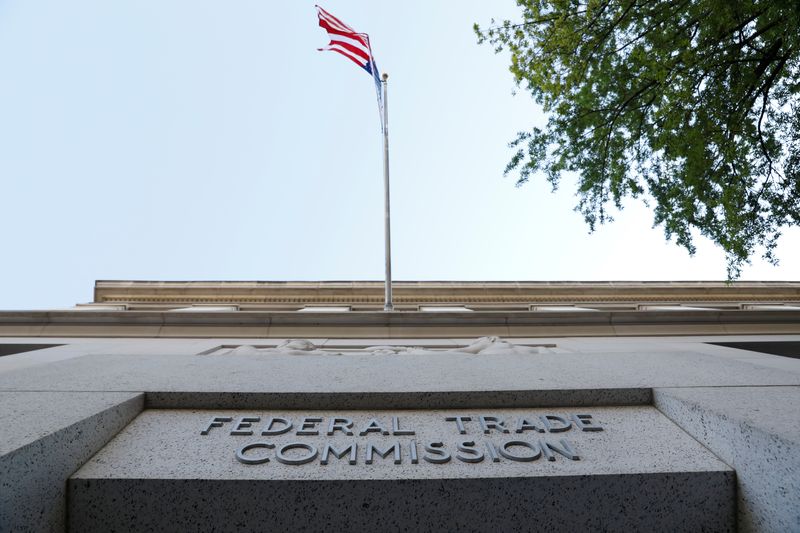By Jody Godoy
NEW YORK (Reuters) -The U.S. Federal Trade Commission sued alcohol distributor Southern Glazer's on Thursday for giving big customers exclusive discounts, enforcing a law aimed at protecting small retailers from bigger competitors for the first time in decades.
The lawsuit is the first the FTC has brought under the Robinson-Patman Act in more than 20 years, a capstone project for outgoing FTC Chair Lina Khan, who views U.S. antitrust laws as intended to combat harms to independent businesses and workers as well as consumers.
Southern Glazer's is the largest liquor distributor in the U.S., carrying brands including Bacardi, Smirnoff and Jim Beam. The lawsuit filed in California seeks to block it from pricing practices that the FTC alleges discriminate against smaller businesses.
"When local businesses get squeezed because of unfair pricing practices that favor large chains, Americans see fewer choices and pay higher prices, and communities suffer," Khan said in a statement.
The Commission voted 3-2 to file the complaint, with Republican Commissioners Andrew Ferguson and Melissa Holyoak voting against it.
Southern Glazer's denied that its discounts violate the RPA and said in a statement that it will defend itself vigorously.
"Alcohol distributors face numerous regulations that dictate how they compete and can price and discount products, and Southern Glazer’s complies with those legal requirements," the company said.
The FTC said Southern Glazer's gave discounts to its largest customers, such as grocery chains Costco (NASDAQ:COST) and Kroger (NYSE:KR), and alcohol retailer Total (EPA:TTEF) Wine & More, that it did not extend to smaller independent shops since at least 2018.
Holyoak wrote in a dissent that the lawsuit targets innocuous business practices and fails to show any harm to competition.
Ferguson, who is poised to become FTC chair when President-elect Donald Trump takes office, said that while the FTC should not decline to enforce the law, the case itself is weak.
"The Commission is unlikely to prevail even on its own theory of the act, and it would be an imprudent use of the Commission’s enforcement resources even if it were likely to prevail," he said.
A lack of enforcement of the act has fueled the rise of behemoths such as Walmart (NYSE:WMT) and driven local independent retailers out of business, leading to food deserts, according to the Institute for Local Self-Reliance, an antimonopoly think tank.
The FTC has separately been looking in to pricing practices at Coca-Cola (NYSE:KO) and PepsiCo (NASDAQ:PEP), which have not been accused of wrongdoing.
Passed in 1936 during the Great Depression, the Robinson-Patman Act prohibits a seller from offering different prices for the same goods to different buyers. The law has a few exceptions, such as when shipping costs are higher for one customer than another.
The FTC brought a case against a powdered milk company in the 1960s that priced private label products differently than its identically formulated brand version, and sued a corn syrup maker in the 1940s for inflating prices for some customers through phantom shipping charges.

Critics say enforcing the law could raise prices for consumers by discouraging wholesale discounts, and that U.S. antitrust laws are fundamentally meant to promote lower prices for shoppers.
Khan and her allies have challenged that view, seeking to wield antitrust law to remedy broader harms associated with corporate consolidation.